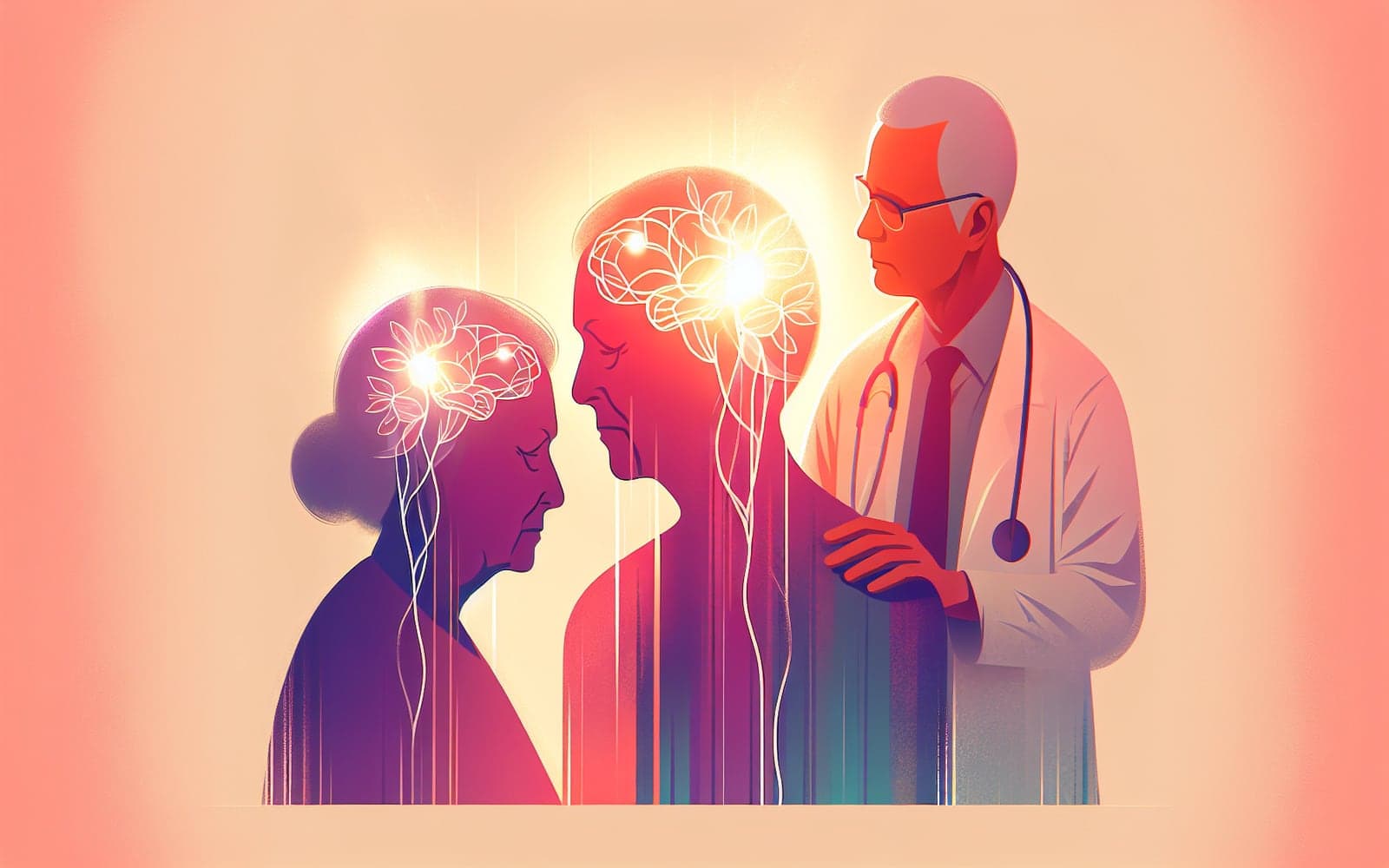Contents
-
Common Symptoms of Dementia
-
Dementia vs. Normal Aging
-
The Role of Family and Caregivers
Could It Be Dementia? Recognizing Key Symptoms Early
Could It Be Dementia? Recognizing Key Symptoms Early
Spotting the Signs
Dementia symptoms can be sneaky, often mistaken for normal aging. Learn how to identify the early signs that shouldn't be ignored.
Contents
-
Common Symptoms of Dementia
-
Dementia vs. Normal Aging
-
The Role of Family and Caregivers
Common Symptoms of Dementia
Memory loss is the most recognized symptom of dementia, but it's not the only one. Patients may struggle with completing familiar tasks, understanding visual images, or following conversations. Behavioral changes, such as mood swings or withdrawal from social activities, are also common and often noticed by family members.
Dementia vs. Normal Aging
While some forgetfulness is a normal part of aging, dementia symptoms are more severe and disruptive. Normal aging might involve occasional memory lapses, but dementia affects daily life and independence. Recognizing the difference is crucial for getting timely help and support.
The Role of Family and Caregivers
Family members and caregivers play a vital role in identifying dementia symptoms. Often, they notice changes in behavior or cognitive abilities before the individual does. Their observations and reports can lead to earlier diagnosis and intervention, improving outcomes for those affected.
FAQs
What is the first sign of dementia?
Memory loss, especially forgetting recent events, is often the first sign.
How is dementia different from aging?
Dementia is more severe, impacting daily life, unlike normal aging forgetfulness.
Can mood changes indicate dementia?
Yes, changes in mood or behavior can be early signs of dementia.
Do family members notice dementia first?
Often, family members observe symptoms before the individual does.
The Bottom Line
Identifying dementia symptoms early can lead to more effective management and support.
Additional References
-
Carr DB, Gray S, Baty J, Morris JC. The value of informant versus individual's complaints of memory impairment in early dementia. Neurology 2000; 55:1724.
-
Wang PN, Wang SJ, Fuh JL, et al. Subjective memory complaint in relation to cognitive performance and depression: a longitudinal study of a rural Chinese population. J Am Geriatr Soc 2000; 48:295.
This article has been reviewed for accuracy by one of the licensed medical doctors working for Doctronic.












